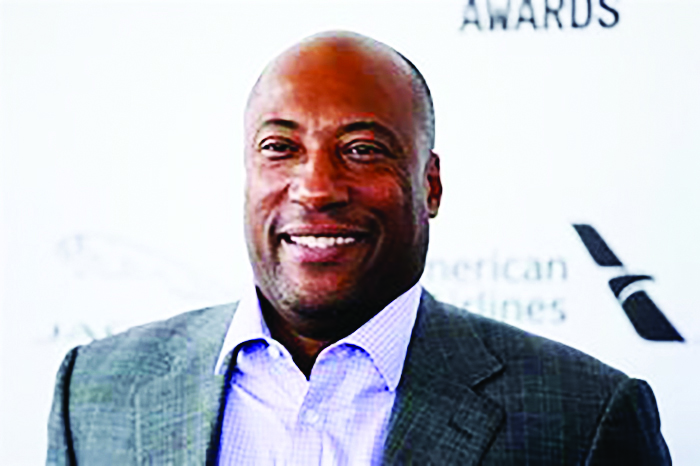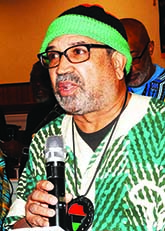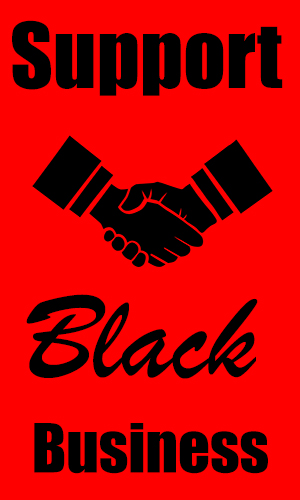
Byron Allen Part II: How Will the Supreme Court Rule in the Byron Allen-Comcast Case?

By Makheru Bradley

On November 13 the Supreme Court (SCOTUS) heard oral arguments in the $20 billion Byron Allen racial discrimination lawsuit against Comcast. The outcome of that case will likely determine Allen’s $10 billion suit against Charter Communications which was filed in 2016. Allen’s lawsuits were based on the anti-racial discrimination clause in the 1866 Civil Rights Act/Section 1981 of the US Code, which guarantees Afrikan American citizens the equal right to make and enforce business contracts with white Americans.
After failing for several years to negotiate a deal with Comcast to carry his cable channels, Allen sued Comcast in 2015. His suit was dismissed three times by a Black federal district court judge, Terry Hatter, before winning twice at the 9th Circuit Court of Appeals. The appellate court ruled that Allen “only had to demonstrate plausible claims that race was a motivating factor in Comcast’s decision” to not carry Allen’s channels. Comcast then appealed to the SCOTUS.
The issue before the SCOTUS
Per The Washington Post, the question the Supreme Court faced was whether Entertainment Studios at such an early stage of litigation had to plead that race was the key reason Allen was denied a contract; in legal terms, whether he would have been successful “but for” his race.
Allen contended he had only to make credible allegations that race was an issue in Comcast’s decision-making, at least in filing the complaint.
Chief Justice John Roberts, Justices Elena Kagan, Sonia Sotomayor, Neil Gorsuch, Stephen Breyer, Samuel Alito and Brett Kavanaugh thoroughly questioned the lawyers of each party. As usual, Clarence Thomas, the lone Afrikan American on the court, was as quiet as Silent Sam, the Confederate statue that was recently removed from the UNC-Chapel Hill campus.
Speaking favorably for Allen, Justice Sotomayor (Obama appointee) said. “As long as you have enough in your complaint to show racial animus and a reasonable inference can be drawn that that’s a but-for cause, I think a plaintiff has done more than enough” for the case to proceed.
Justice Kavanaugh (Trump appointee) suggested that the SCOTUS should overrule the 9th Circuit’s decision and send the case back for further proceedings.
Justice Elena Kagan (Obama appointee) questioned the idea of having two standards -- race as the sole factor versus a motivating factor. She said that, “just strikes me as confusing.” Directing her question to Allen’s lawyer Justice Kagan asked: “Don’t you think that the 9th Circuit has to be reversed?”
Justice Neil Gorsuch (Trump appointee) posed the same question: “Don’t you agree that the 9th Circuit was wrong?”
The general consensus favored a Comcast win, but Allen will be given room to continue his lawsuits.
What happens next with Byron Allen and Comcast?
Now that the SCOTUS has heard the arguments, and the 9th Circuit ruling is likely to be overturned, will Comcast and Bryon Allen work out a deal? I think it depends on whether Comcast wants to be known as the corporation which took down the 1866 Civil Rights Act. It’s possible that Comcast could win in the courtroom and lose much more in the court of public opinion.
I think Comcast and corporate America are comfortable with the 1866 law as it is. The law has been used to win some discrimination cases, but it hasn’t proven to be a threat to their economic hegemony.
Comcast, via the inclusion of networks owned by Oprah Winfrey, Magic Johnson, Cathy Hughes and P Diddy Combs, puts up a facade of diversity. Dr. Martin L. King often talked about the presence of justice and the absence of tension. Corporations like Comcast are not really interested in the presence of justice. They want the absence of tension which is conducive to generating profits.
The SCOTUS ruling will come in June 2020, during the presidential campaign. A Comcast win will be tied to Trump, because his Justice Department supported them at the SCOTUS. Do they want that tension and a potential political backlash?
Does Byron Allen’s partnership with Sinclair Broadcasting give us a hint?
In August 2019, “Allen and other private equity partners teamed up with Sinclair Broadcast Group to acquire 21 regional sports networks once owned by 21st Century Fox. The acquisition, priced at $9.6 billion, came about after Disney agreed to sell the properties as part of its merger with Fox, responding to antitrust concerns over the new entity’s potential ownership of both ESPN and the local stations.”
Sinclair is considered by many pundits to be the media mouthpiece of the Trump Administration. Regarding that deal, heavyweight Democrat donor Byron Allen said, “We can put politics aside. Let's do the American thing. Let's make some money together.”
Would Bryan Allen take an offer to get his networks carried by Comcast and Charter? Allen has proven that he has no problem making deals across the political spectrum. He would likely be under enormous pressure from the Black organizations now supporting him to not risk tanking the 1866 Civil Rights Act, if a deal is possible.
We’ll see.
For more from the author, follow his blog Makheru Speaks.

